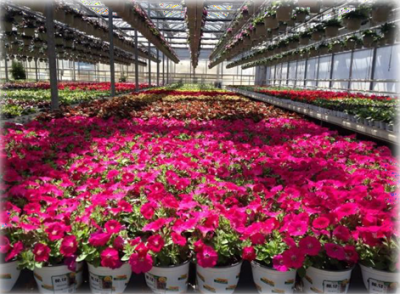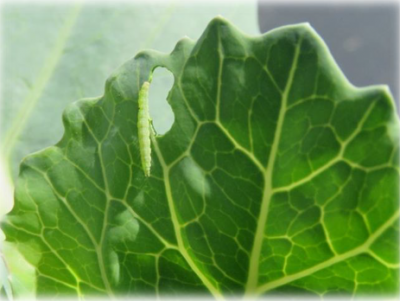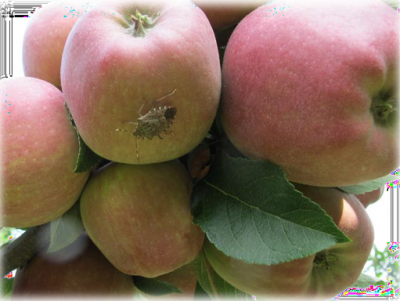
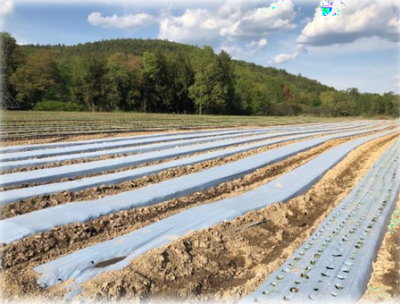
2021 IPM Program contacts:
| IPM Program Coordinator
Mary Concklin |
860-486-6449 |
|
| Diagnostics
Nick Goltz |
860-486-6740 |
|
| Fruit IPM
Mary Concklin |
860-486-6449 |
|
| Greenhouse IPM
Leanne Pundt |
860-626-6855 |
|
| Rosa Raudales | 860-486-6043 | rosa.raudales@uconn.edu |
| Hemp Program
Shuresh Ghimire |
860-875-3331 |
|
| Invasive Species IPM
Victoria Wallace |
860-885-2826 |
|
| IPM Curriculum
Mary Concklin |
860-486-6449 |
|
| Pesticide Safety Education
IPM Team Members |
||
| Pollinator Program
Victoria Wallace |
860-885-2826 |
|
| School IPM
Victoria Wallace |
860-885-2826 |
|
| Turf & Landscape IPM
Victoria Wallace |
860-885-2826 |
|
| Vegetable IPM
Shuresh Ghimire |
860-875-3331 |
|
| Ana Legrand | 860-486-0869 | ana.legrand@uconn.edu |
This report was edited by Mary Concklin, IPM Program Coordinator.
For more information about the UConn IPM Program, please contact: Mary Concklin, IPM Program Coordinator University of Connecticut Department of Plant Science & Landscape Architecture 1376 Storrs Road, Unit 4067, Storrs, CT 06269-4067 mary.concklin@uconn.edu; 860-486-6449 IPM website: www.ipm.uconn.edu
Cover photos:
Upper left: Spring greenhouse crops. Photo: Leanne Pundt Upper right: Diamondback moth caterpillar feeding on cabbage. Photo: Ana Legrand Lower right: Biodegradable plastic mulch for vegetable production. Photo: Shuresh Ghimire Lower left: Brown Marmorated Stink Bug on apples. Photo: Mary Concklin
CONNECTICUT INTEGRATED PEST MANAGEMENT PROGRAM
2021 Annual Report
Introduction
The Integrated Pest Management (IPM) Program is a collaboration between UConn Extension and the Department of Plant Science & Landscape Architecture. Since its inception in 1980, the UConn IPM Program has made great strides in developing and implementing sustainable methods for pest control throughout Connecticut. Integrated Pest Management applies multiple tactics in a variety of settings through the selection of appropriate tools and the education of agricultural industry members and Connecticut citizens to provide sustainable, science-based approaches for the management of plant pests (insects, mites, diseases, wildlife, and weeds, including invasive plants). The UConn IPM Program incorporates all possible crop management and pest management strategies through knowledgeable decision-making, utilizing the most efficient landscape and on-farm resources, and integrating cultural and biological controls. Program objectives include maintaining the economic viability of agricultural and green industry businesses, enhancing and conserving environmental quality and natural resources, educating participants on the effective use of cultural practices to mitigate pest problems, of biological control agents, and educating pesticide users about bee and other pollinator safe materials, least toxic options, and the safe use and handling of organic and synthetic pesticide products. The 2021 IPM Program Team included Mary Concklin (fruit and IPM Coordinator), Leanne Pundt (greenhouse), Victoria Wallace (school, invasive, pollinators, turf and landscape), Ana Legrand (vegetables), Shuresh Ghimire (vegetables and hemp), and Nick Goltz (diagnostician, hired August 2021).
The goal of IPM is to reduce the dependence of agricultural producers and green industry professionals, Connecticut citizens, and schools on pesticides while maintaining or improving productivity, crop quality, and quality of life. The IPM Program has educated growers statewide about the judicious and safe use of organic and synthetic pesticides and alternative pest control methods.
Broader adoption of IPM practices enhances responsible pest management and reduced management and production costs; minimizes adverse environmental and economic effects from pests and pest management; results in improved ecosystem quality and plant performance; and improves plant health, quality, yields, and aesthetics. The use of IPM includes cultural controls; biological control agents; biological fungicides; physical and mechanical controls; the use of resistant cultivars; regulatory controls; behavioral modification; and, only, when necessary, chemical controls, with the selection of least toxic products. IPM partners and collaborators include State and Federal agricultural and environmental/non-governmental agencies and organizations; State, New England, and Northeastern fruit, greenhouse, grounds keepers, nursery, turf, landscape, and vegetable associations; industry suppliers/dealers; regional universities; educators; schools and municipalities; individual growers, farmers, and producers; Master Gardeners; and the general public.
COVID-19 impacted many outreach programs usually conducted face-to-face beginning in 2020, with continuing restrictions due to the Delta variant in 2021. However, our team members continued to adapt and offered many programs virtually, with a few in-person as well as in-person site visits with safety protocols in place and adhered to. In pre-Covid years, IPM Program team members conduct intensive on-site educational training for fruit and vegetable producers, garden center owners, greenhouse growers, nursery producers and retailers, and turf and landscape professionals. Growers and green industry professionals receive information on the current status of and recommendations for important plant pests and training via pest messages, email alerts, webinars, newsletters, articles in national trade journals, management guides, websites, social media, consultations and counseling via phone and text, site visits to their operations, workshops, field demonstrations and research projects, conferences, exhibits, and short courses. IPM programs are evaluated through pre- and/or post-program surveys and evaluations, needs assessment surveys, focus groups, key informant interviews, testimonials, and unsolicited comments.
IPM Outcomes
There were 53,327 sessions created by 45,354 users of the IPM website (ipm.cahnr.uconn.edu) during 2021. Users included residents of Connecticut plus NY, CA, VA, TX, WA, MA, PA, IL, and MI, as well as India, Canada, Philippines, United Kingdom, Australia, South Africa, Nigeria, Pakistan and Kenya.
Vegetable integrated pest management education was delivered to over 690 vegetable growers and stakeholders every week from May to September 2021 through 19 weekly vegetable pest alert emails focusing on pests, pest management and decision making, and safe pesticide use. The email open rate was 25-30%.
Twenty-three students enrolled in our online Vegetable Production Certificate course in the winter of 2021. The course had seven modules, each module with a self-paced video, supplemental materials, and a short quiz. In the post-course evaluation survey (N = 23, n = 11), respondents indicated their knowledge on the subjects increased from average of 52% before the course to 86% after the course.
Over 300 invasive plant activities occurred in over 50 Connecticut towns, reaching over 9,153 Connecticut citizens in 2021, including agency and municipal staff. A minimum of 17,350 hours of intensive invasive plant training sessions and management activities was provided, as well as technical educational outreach.
School and municipal grounds managers, nursery managers, and landscape professionals from 169 CT towns received 7 emails with information, educational materials, and best management practices, and a survey regarding the impact of CT’s Pesticide Ban on school grounds managers was completed.
UConn Native Plants and Pollinators Conference, a biennial event, was delivered virtually to 391 people, including grounds managers, landscape professionals, town conservation commission members, educators, master gardeners, and government officials.
IPM Program Funding
The Connecticut IPM Program is a collaboration between UConn Extension and the Department of Plant Science & Landscape Architecture. The IPM Program Team acknowledges support from the following Federal, State, and private funding sources:
Connecticut Department of Agriculture
Connecticut Department of Energy and Environmental Protection (DEEP) Connecticut Farm Bureau
Connecticut School IPM Coalition
Grower donors and municipal and school grounds research participants throughout Connecticut Indian Land Tenure Foundation (ILTF)
Multi-state Hatch Project NE-1032 National Plant Diagnostic Network (NPDN)
New England Vegetable & Berry Growers’ Association Northeastern IPM Center (NEIPMC)
Northeast Organic Farming Association of Connecticut (NOFA)
Northeast Sustainable Agriculture Research and Education Program (SARE) Rose Mill Company, Hartford, Connecticut
The Connecticut Agricultural Experiment Station (CAES) The University of Connecticut
The University of Connecticut Innovative Programming in Extension grant
The University of Connecticut Research Excellence Program, Office of the Vice-president for Research US Department of Agriculture (USDA) Animal and Plant Health Inspection Service (APHIS)
USDA Agriculture and Food Research Initiative Education and Literacy Initiative (AFRI ELI) USDA Extension Risk Management Education Program (ERME)
USDA Federally Recognized Tribes Extension Program (FRTEP)
USDA National Institute of Food and Agriculture (NIFA) Beginning Farmer and Rancher Development Program (BFRDP)
USDA NRCS Conservation Innovation Grants (CIG)
USDA NIFA Crop Protection and Pest Management (CPPM) Extension Implementation Program (EIP) USDA NIFA New Beginning for Tribal Students (NBTS)
USDA NIFA Specialty Crop Research Initiative (SCRI) project
USDA Northeast Region IR-4 Program
USDA Northeast Sustainable Agriculture Research & Education (SARE) Program USDA Risk Management Agency (RMA)
USDA Specialty Crop Block Grant (SCBG) Program
UConn IPM Program Team Delivers Educational Outreach
Greenhouse IPM
Program Leader: Leanne Pundt, Extension Educator Dr. Rosa Raudales, Associate Professor of Horticulture & Greenhouse Extension Specialist
Identifying and Managing Pests of Vegetable Transplants program conducted by Leanne Pundt January 7, 2021, 71 attendees
Vegetable Seedlings and Transplant Production in Greenhouses, virtual presentations hosted by Rosa Raudales and Leanne Pundt, organized by Rosa Raudales. Workshop for Greenhouse Growers, 5 webinar presentations, 354 total attendees (average 70 per webinar).
Bedding Plants – Spring 2021 webinar series hosted by Rosa Raudales and Leanne Pundt
- February 10, George Grant, GPS Pro Support (107 attendees)
- February 17, Dr. Raymond Cloyd, Kansas State University (66 attendees)
- February 24, Margery Daughtrey, Cornell University (65 attendees)
Of those that filled out online surveys, 100 % rated the webinar as useful to very useful.
Comments:
Great job, thanks for making this happen virtually, I think you have done a wonderful job under trying educational circumstances.
Scouting Talks
IPM training session with Leanne Pundt. Michaels Greenhouse on Biological Controls of Whiteflies and Tips on Scouting. September 22, 2021, 5 attendees
In-person 2021 Greenhouse Biological Control Conference could not be scheduled due to COVID restrictions.
Suzanne Wainwright Evans talks Biocontrols for Greenhouse Ornamentals webinar was held on Monday, July 19, 2021 organized by R. Raudales and L. Pundt. 62 attended. This was an international audience.
Comments:
- Suzanne had lots of new information for us which was of great
- Thank you for hosting the great webinar yesterday!
- Raising pea aphids on fava bean plants was especially
- All great information!
- I always learn a few new things from Suzanne
- Suzanne is one of my favorites, I learn something new every time. She doesn’t re-use the same presentation over and
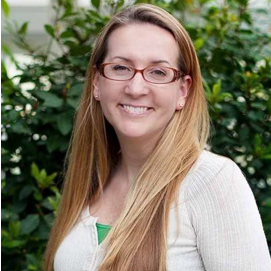
Season Long Hands-On Training
Over 70 visits conducted when requested by growers (number was reduced due to COVID). Growers were reached via phone calls, email, and text messages in response to their questions and concerns.
Greenhouse Pest Messages
30 pest messages, primarily focusing on pest and disease issues, biological controls and IPM decision making were sent out via email to 288 growers, retailers, and allied members of the greenhouse ornamental horticulture industry.
Thank you for the pest message on Whiteflies on Poinsettias, we had a major issue and decided on using Rycar. Your suggestion once again paid off, the Rycar absolutely worked with no phytotoxicity! I have been in Horticulture and Arboriculture for 30 years and still learning every day. Thank you again for all your help.
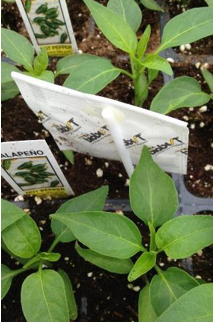
Diagnostics
Program Leader: Nick Goltz, DPM, Assistant Extension Educator.
In collaboration with the UConn Home & Garden Education Center, more than 208 physical samples were processed during 2021. Several hundred digital samples (submitted via email) and phone calls were also processed. The program was led part-time by Matt Debacco, Carol Quish, and Lilian Borbas until the new program leader, Dr. Nick Goltz, was hired and began working at UConn (July 30, 2021).
Sample types submitted this year included agronomic field crops, specialty fruit and vegetables, landscape ornamentals, and ornamentals from nurseries and greenhouses. Samples were accepted from both homeowner and commercial clients from all eight Connecticut counties, as well from Massachusetts and New York.
Diagnostic services rendered included plant identification, insect identification, plant disease diagnosis, abiotic disorder diagnosis, and pathogen baiting from tissue and substrate. Fees of $20.00 per sample were covered by a USDA NIFA CPPM grant for samples from Connecticut commercial growers. A hot water seed treatment service was also provided upon request.
Since assuming leadership of the program, Dr. Goltz wrote three blog posts, presented two modules for an extension online program, and presented as a guest lecturer for three courses taught at UConn. Dr. Goltz supported the efforts of the UConn Home and Garden Education Center by securing partial funding for staff supplies and salaries. Dr. Goltz also provided diagnostic photos, cultures and live specimens to support UConn faculty teaching and student research.
The UConn Plant Diagnostic Lab is part of the National Plant Diagnostic Network, an internationally recognized consortium of plant diagnostic laboratories funded in part by the USDA National Institute of Food and Agriculture and the US Department of Homeland Security.
Approximate percentage of total submitted samples from each county.
| County | Approximate % of Total |
| FAIRFIELD, CT | 24.0 |
| HARTFORD, CT | 16.0 |
| LITCHFIELD, CT | 7.0 |
| MIDDLESEX, CT | 1.0 |
| NEW HAVEN, CT | 5.0 |
| NEW LONDON, CT | 13.0 |
| TOLLAND, CT | 24.0 |
| WINDHAM, CT | 4.0 |
| MIDDLESEX, MA | 4.0 |
| WASHINGTON, NY | 1.0 |
| WESTCHESTER, NY | 1.0 |
Vegetable IPM
Program Leader: Dr. Shuresh Ghimire, Assistant Extension Educator
2021 Southern New England Vegetable Growers Meeting Series
Jan 14 & 28, Feb 11 & 25 2021, virtual training UConn Extension partnered with UMass Extension and URI Extension to organize the 2021 Southern New England Vegetable Growers Meeting Series to educate growers on pests of the year, high-tunnel fertility, winter greens production, and greenhouse seedling issues (4 sessions). The speakers were invited from Univ. of Arkansas, Cornell Cooperative Extension, University of Vermont Cooperative Extension, UMaine Extension, Univ. of Rhode Island Extension, UMass Extension, and UConn Extension. The number of total attendees in all 4 sessions were 862 (range: 143 – 293 attendees per session). On average, participants reported 29.6% increase in knowledge from the webinars (range 26-39%). The likelihood of the participants to utilize the information learned at the webinars for their operation was 3.9 out of 5 (range 3.7- 4.1).

Comments from the participants:
- Well done. Presenters covered a broad scope clearly and concisely in a short period of
- Y’all did a great job, nice flow, and excellent to hear from folks outside of the region combined with local knowledge. Thanks!
- It was the best zoom webinar this winter! Really good info, thank you!
2021 Vegetable Production Certificate Course
Twenty-three students enrolled in our online Vegetable Production Certificate course in the winter of 2021. The course had seven online modules, each module with a self-paced video, supplemental materials, and a short quiz. This course was designed to benefit beginner vegetable producers with 0-3 years of vegetable growing experience or no formal training in agriculture.
The participants learned answers to the basic questions about farm business planning, planning and preparing for vegetable farm, warm and cool-season vegetable production techniques, season extension, identification of biotic and abiotic issues, and marketing. In the post-course evaluation survey (total number of course participants = 23, number of respondents = 11), respondents indicated their knowledge on the subjects increased from average of 52% before the course to 86% after the course.
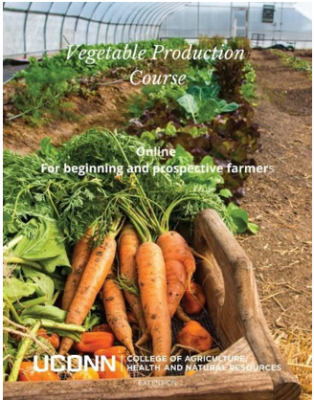
Comments from course participants:
- For an online course, it was very good. I thought the presentations were concise and effective. It was also easy to navigate. The case studies within the warm/cold season vegetable modules were great. I think this is a great introductory course for young
- I really enjoyed the course. I would love more…maybe a part
Mashantucket Pequot Federally Recognized Tribes Extension Program
UConn Team Members: Shuresh Ghimire (April 2019-present), Mary Concklin (2017-April 2019), Joseph Bonelli, Robert Ricard (2021 to present), and Miriah Kelly (2017-August 2020). Funding: USDA-FRTEP
From the starting of the FRTEP in 2017, the MPTN and UConn Extension have been collaborating to enhance agricultural production, food security, and health of tribal community members. An Extension program involving several specialists in vegetable and fruit production, farm business management, marketing, youth development, health and nutrition, communications, evaluation and assessment is working with the MPTN on their goals.
In 2021, MPTN farm business significantly expanded its production capacity with the addition of two high tunnels (thanks to NRCS funds) and conversion of two old high tunnels into hydroponic greenhouses. UConn FRTEP team provided training, some equipment and materials that were needed to develop and improve the agricultural enterprise at the MPTN. Some examples of the materials and equipment added over the past few years to the farm include refrigeration system, deep freezer, food dehydrator, disk, plow, corn planter, mulch layer, sprinkler, sprayer, produce wash stations, customize packaging, and deer fencing. A mobile farm stand was built and utilized in transporting food to the tribal communities.
UConn Extension Nutrition Educators have been working with the High Five project, and Parks and Recreation Center at the MPTN to engage youth and adults in a series of virtual cooking/nutritional workshops. More than a dozen virtual cooking classes were held in 2021. On average, the number of participants in those virtual classes was 20 (highest 55). Youth, their parents, grandparents, aunts, uncles, and friends participated in those classes. Turkey chowder and stuffing cups, quesadillas and salsa, impossible cheeseburger pie and blue berry slump, apple hand pies, Shepard’s pie, and cinnamon swirl pancakes with turkey breakfast sausage were some of the recipes discussed in the class.
On Nov 4, 2021, Mashantucket Pequot Tribal Nation (MPTN) announced the launching of its new department, the MPTN Department of Agriculture. Several UConn Extension Educators including FRTEP team members are strategic partners with MPTN Department of Agriculture.
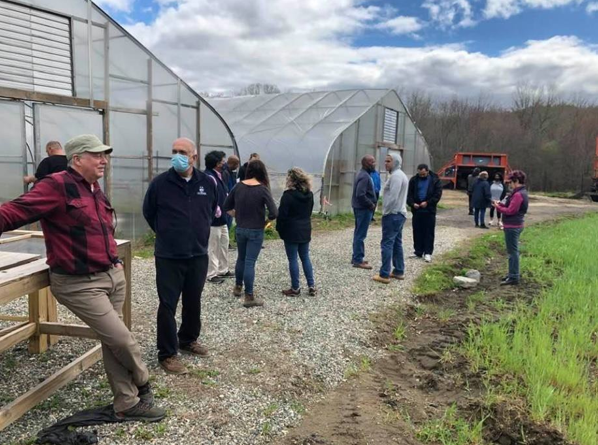
Weekly Vegetable Pest Alert
Vegetable integrated pest management education was delivered to over 690 vegetable growers and stakeholders every week from May to September 2021 through 19 weekly vegetable pest alert emails focusing on pests, pest management and decision making, and safe pesticide use. The email open rate was 25-30%.
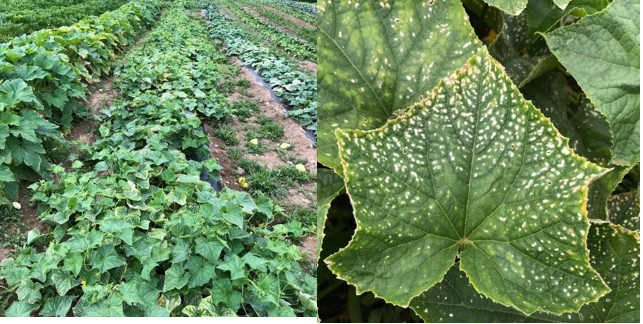
Hemp Program
Program Leader: Dr. Shuresh Ghimire, Assistant Extension Educator
2021 Connecticut Hemp Webinar Series
UConn Extension partnered with USDA NRCS, CT Resource Conservation and Development, CT Department of Agriculture, and CT Hemp Industry Association to organize the 2021 Connecticut Hemp webinar series from January to May of 2021 (total of six webinars). The goal of the conference was to bring together hemp producers, agricultural suppliers, and regulatory agencies interested in the hemp industry. The conference covered hemp growing from seed to harvest outdoor and indoor, basics of hemp processing, hemp regulations, and insect pest and disease management. The webinar series was attended by a total of 151 current and prospective hemp growers (on average 25 attendees per webinar). The recordings are available on CT RC&D website.
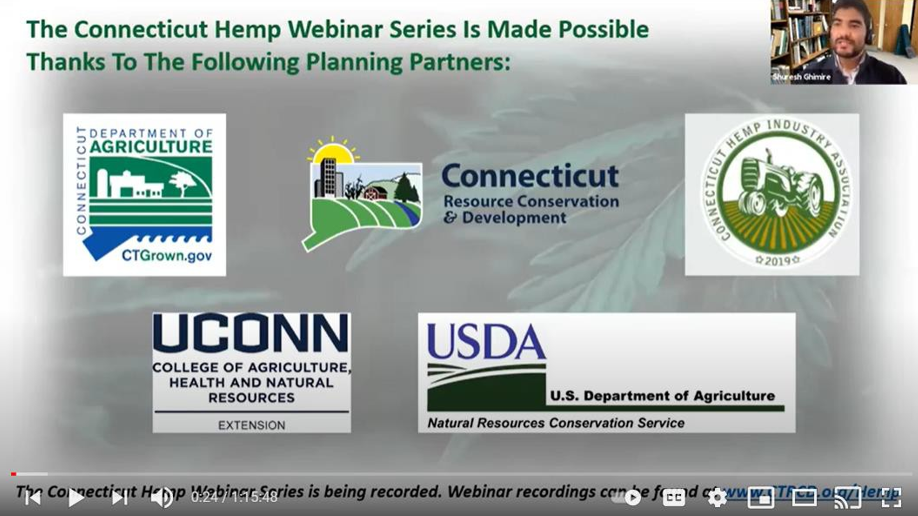
Pollinator Program
Program Leader: Victoria Wallace, Extension Educator
Native Plants and Pollinators Conference. November 5, 2021. Virtual.
Organizers: Victoria Wallace, Extension Educator, and Jessica Lubell-Brand, Associate Professor
The 2021 biennial symposium was attended virtually by 391 people. COVID impacted the venue and planning of the program, but not the attendance or enthusiasm for the popular event. While the program was presented in a virtual, rather than in-person, format due to COVID-19, the program was well received and successfully implemented. The five-hour event featured national and regional experts sharing practical knowledge to promote native species and improve wildlife habitat. While the majority of the attendees were from New England and the Northeast U.S., many attendees were attracted from states across the country, including Maryland, Ohio, Maine, Florida, Illinois, Wisconsin, Colorado, California, and more. A few international attendees from Canada joined as well. Pesticide credits were awarded. This conference featured presentations on:
- The Language of Flowers: An Introduction to Pollination Ecology, by Rebecca McMackin, Director of Horticulture, Brooklyn Bridge Park. Participants learned about the importance of flowers and how they support pollinator ecology.
- Pollinator Plants for Small Spaces and Containers, by Mark Dwyer, Landscape Prescriptions by MD. Participants learned about plant selections that support pollinators, including top-performing cultivars, and examples from design/build projects.
- Beyond the Traditional Butterfly Garden: Supporting Lepidoptera with Native Plants, by Andrew Brand, Interim Director of Horticulture, Coastal Maine Botanical Garden. Participants learned about native plants and shrubs, both popular and under-used, that support Lepidoptera in the landscape.
- Bees, Pesticides and Politics: Challenges and Opportunities for Sustainable Urban Landscapes, by Daniel Potter, Ph.D., Professor, University of Kentucky. Participants learned about the health of pollinators and conservation initiatives that can be implemented by homeowners and land care professionals
99% of attendees rated the virtual NPPC conference as good to excellent. 93% of evaluation respondents said that the conference provided practical, usable ideas. 92% of evaluation respondents stated that they are more knowledgeable about native plants and pollinators after attending the program. 95% of evaluation respondents stated that they are likely to use what they learned from the program in their landscaping, designing, or growing plants for pollinators next year.
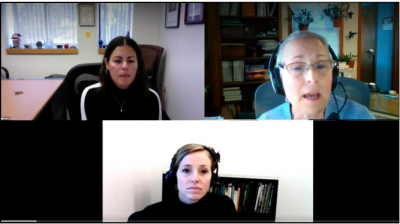

Comments from course participants:
- I learned a lot from each of the presenters. As part of a Pollinator Pathway team, everything I learned today will be incorporated in my planning and planting in the coming
- I will be more aware of pollinators in my garden and will observe them more closely. I will choose plants that will encourage visits from pollinators. I hope to be more creative with my container garden!
- I really enjoyed all the topics, I feel like all the information I received today can be useful for my job, I think I am most excited to enhance my container
- What a fine conference. Thanks to all of the speakers, and special thanks to you for all your work to make this
- What a terrific symposium, I really enjoyed it and it sparked lots and lots of new
- Today’s conference was a HOME RUN! Great information. Stimulating. I learned A LOT! The slides and the explanations were excellent, as were all the speakers. You picked the right speakers. Nobody put me to sleep and for doing so on Zoom, that says a real lot. I learned a lot about bees, and thought I was already pretty knowledgeable, but it’s like they say, the more you learn, the more you found out what you didn’t know. Thanks for all you do to educate and minister to the green industry. I’m psyched to go out and save the world. Rejuvenated and inspired! – Gregory Foran, Glastonbury Parks & Recreation Supervisor
Invasive Species IPM Program
Program Leader: Victoria Wallace, Extension Educator
Invasive Plants: A Growing Concern
IPM methods can be used to control invasive plants in residential properties, communities, and natural and managed landscapes. The Connecticut Invasive Plant Working Group (CIPWG) is a consortium of members of environmental organizations and affiliates of municipal and state agencies whose mission is to promote awareness of invasive plants and their non-invasive alternatives. CIPWG’s news and events list serve has approximately 1150 members. The CIPWG website (www.cipwg.uconn.edu) provides information on invasive plant identification and management, the Connecticut list of invasive plants, photos, native plant and other non-invasive alternatives, and legislative updates. CIPWG invasive plant talks were presented, invasive plant educational materials were provided, and/or invasive plant management activities occurred at local, statewide, and regional events during 2021. A minimum of 300 invasive plant activities in over 50 Connecticut towns reached over 9,153 Connecticut citizens in 2021, including agency and municipal staff. A minimum of 17,350 hours of intensive invasive plant training sessions and management activities were provided, as well as technical educational outreach. During the 2021 calendar year, there were 72,036 page views on the CIPWG website, and 30,390 users participated in 37,004 website sessions.
Invasive Biological Control Projects: Swallowwort
Victoria Wallace serves as the Principal Investigator for a USDA APHIS biological control project of swallow-wort, a serious invasive weed of meadows, pastures, roadsides, woodland edges and coastal shorelines. Ms. Wallace supervised UConn Master Gardener Coordinator Gail Reynolds, who recruited private landowners to participate in the applied research project. One species of moth (Hypena opulenta) was introduced as a biological control agent onto dense monocultures of swallow-wort in 2021, during the second year of the biocontrol project in CT. A fact sheet and an infographic for swallow-wort biological control are available on the IPM website. The introduction and establishment of biological control agents to reduce populations of swallowwort in CT provide a sustainable method of managing this invasive pest in open spaces throughout Connecticut.
School IPM Program
Program Leader: Victoria Wallace, Extension Educator
The Connecticut School IPM Coalition was formed to support School and Municipal Grounds Managers with turf care and landscape practices following the statewide ban of pesticides on daycare and K-8 school properties. Coalition members annually develop and present in-person educational workshops for school grounds and athletic field managers and their staff on maintaining grounds and fields without the use of pesticides. Assessment tools and methods to determine the impact of the management and quality of school grounds and athletic fields have been developed to better serve school grounds managers. The state of Connecticut requires the use of an IPM plan for care of all school grounds and athletic fields, even if the school managers are obligated to manage and care for these properties without the use of pesticides.
An annual day-long School IPM educational workshop was planned for August 2021, but was cancelled due to COVID-19, which greatly affected our planning and development of all school IPM programs. Access to school buildings and grounds was prohibited, and both staff and participant travel was restricted.
We created IPM educational videos in lieu of in-person programming. The School IPM Faculty, including V. Wallace and Jason Henderson, initiated the production of a series of educational videos on School IPM program topics, beginning with cultivation and overseeding as the first topics. Additional videos on fertility and irrigation are in discussion. Victoria Wallace and Alyssa Siegel-Miles, Research Assistant, also continued to produce Extension documents that benefit school ground managers and add them to the IPM website.

We surveyed school grounds employees in the fall of 2020 and completed a factsheet with the results in 2021. In CT, many school grounds managers were considered essential workers during the first year of COVID. For many, their key responsibilities for field maintenance were altered due to COVID restrictions and diverted to complete alternate tasks, such as sanitizing both the school entryways and inside the school buildings. 75% of respondents had experienced limited crew numbers or reduced hours for maintenance. 60% of respondents reported that they had experienced budget cuts. In 2021, the combined impact of restricted time and budget reductions affected school grounds manager day-to-day maintenance practices and also the ability to attend professional development programs.
A survey, Athletic Field and School Grounds Management Practices: Ten Years After the CT Pesticide Ban, was developed and distributed to CT grounds managers and staff in winter of 2021 in order to evaluate the effect of CT’s school pesticide ban legislation over the past 10 years. UConn Extension had completed a survey of school grounds managers in 2012, which assessed how management practices changed to accommodate the 2010 regulations in order to understand the initial impact of this legislation on school grounds and athletic fields. July 1, 2020, marked the 10- year anniversary of the pesticide bans on K-8 school grounds.
The overall objective of the survey was to document current management practices on CT school grounds; evaluate how maintenance practices have changed over the last 10 years (pre- and post-ban); compare perceptions during the early years of the ban to current perceptions; develop goals related to future management practices; and understand how UConn Extension can continue to provide support as school grounds managers refine and improve the sustainability of their maintenance practices. The results are based on the overall quality of the grounds/fields as perceived by the school grounds manager. Survey results will provide direction for future School Integrated Pest Management (IPM) outreach education and help to prioritize future turfgrass research, develop enhanced best management practices for school athletic fields and landscape areas, and support the ability to provide guidance to the CT legislature in advance of future state legislation.
Data from the survey is currently being analyzed and compiled.

Sustainable Landscapes Program
Program Leader: Victoria Wallace, Extension Educator
National Turfgrass Evaluation Program-Tall Fescue Test
Year 3 data was collected for a 5-year evaluation trial of turf-type tall fescue cultivars. UConn serves as an evaluation location for this national turfgrass test.
National Turfgrass Evaluation Program – Fine Fescue Test
Year 1 data was collected for a 5-year evaluation trial of fine fescue cultivars. UConn serves as an evaluation location for this national turfgrass test.
Alliance for Low Input Sustainable Turfgrass (ALIST) Evaluation
2021 ALIST Fine Fescue Test seeded in September 2021.
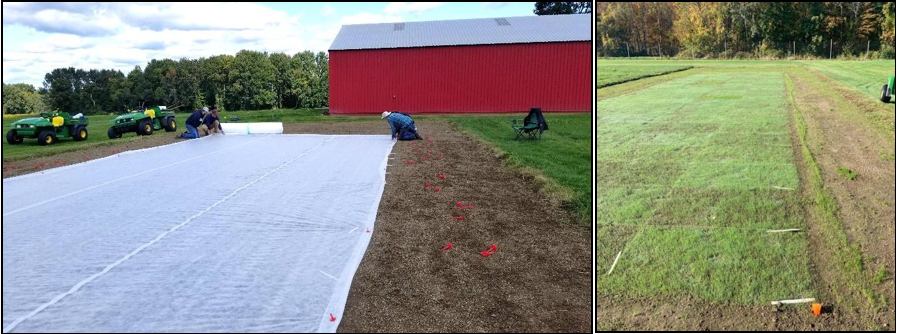
Conference Programs
Sustainable landscape presentations were conducted virtually (nationally, regionally and in state) due to COVID travel restrictions. Victoria Wallace, presented at the New England Cemetery Association Conference, the CT Recreation & Parks Association Conference, the CT Grounds Keepers Association Educational Program, the CT School Building & Grounds Association, and the Ohio State Turfgrass Foundation Conference. Presentation topics included integrating assessments into school grounds programs, turfgrass selection for a sustainable landscape, and UConn research updates.
Cornell “Short Cutts”
V. Wallace serves as UConn representative for a regional turfgrass conference call and newsletter (33-35 weeks/year; April-October), hosted by Cornell Extension faculty. IPM recommendations for turfgrass managers along with current research and weather forecasting were made available to Extension faculty in the Northeast.
Pesticide Safety Education
Program Leader: Victoria Wallace, Extension Educator
Ornamental and Turf Short Course
This Short Course was converted to an online educational format, providing an in-depth program that reviews the information necessary for studying and fulfilling the requirements of the Ornamental and Turf/Golf Course Superintendents State of Connecticut Supervisory Pesticide Applicator Certification exam. There are 8 modules for this educational program. A student completing all the modules, working through the quizzes, and studying resources materials independently should be able to successfully pass the examination, both written and oral state exam. Class topics are: Pesticide Laws and Regulations, Pesticide Safety, Botany and Ornamental Identification, Plant Pathology and Ornamental Plant Diseases, Entomology and Insect Pests of Woody Ornamentals, Area and Dosage Calculations, Turf Management and Weed Management. Each class begins with a basic overview of the science then takes an in- depth look at specific pests, their biology and control. In 2021, the online winter session ran from January-March, and a fall session ran from October-early December. Instructors included: Victoria Wallace, Nick Goltz, Sarah Bailey, and Robert Durgy (CT Agricultural Experiment Station).
Vegetable Entomology
Program Leader: Dr. Ana Legrand, Assistant Extension Professor
Brassica IPM
The Brassica Pest Collaborative continued its work by organizing a number of educational activities. These activities were mostly online due to the COVID-19 pandemic. Ms. Maussi Arrunategui, graduate student in Dr. Legrand’s lab, continued work on evaluating trap crops for brassica insect pests. Field experiments were conducted at the Department of Plant Science Research and Teaching Facility to test the effectiveness of a number of potential trap crops to attract the diamondback moth – a key pest of cole crops in Connecticut and around the world. Trap crops attract the pest away from the main crop thus concentrating pest infestations in a smaller area that could be treated or destroyed. Further, the project is also testing repellent plants against the diamondback moth so that a ‘push-pull’ system can be developed in which the repellent plants complement the trap crops and reduce pest pressure on the crop.
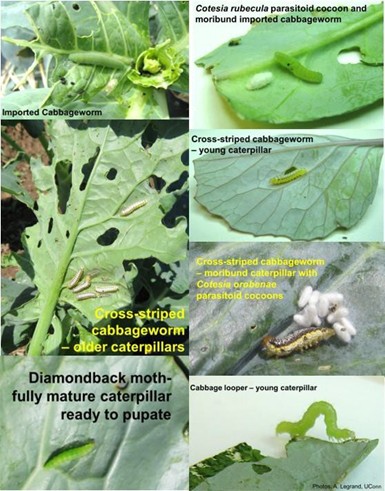
Potato Leafhopper Monitoring & Remote Sensing Project
A multi-disciplinary team at the University of Connecticut continued work to develop a monitoring system for insect pest damage using drones outfitted with spectral sensors. The goal is to detect the presence and early plant damage caused by the potato leafhopper (PLH) on green beans and potatoes. PLH is a significant pest in several horticultural systems, and this work has the potential to benefit multiple commodities through early detection of the insect with minimal labor inputs by growers. Mr. Bivek Bhusal and Ms. Amber Agnew worked on greenhouse and field experiments to advance this project. The information collected will guide the analysis of bean and potato crop imagery captured by drones. The ultimate goal is to develop a digital scouting tool for PLH feeding damage or for mapping PLH location in a field.
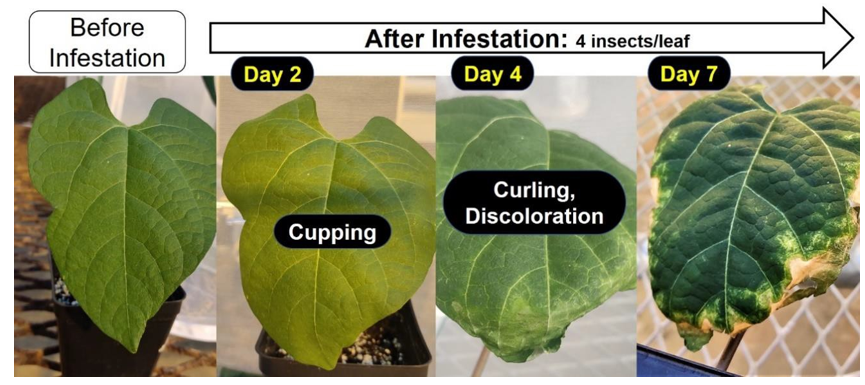
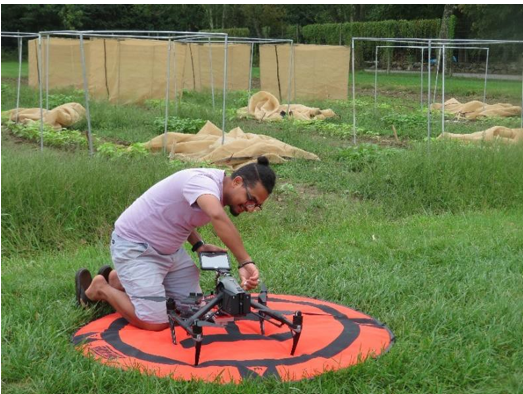
Fruit Production and IPM
Program Leader: Mary Concklin, Extension Educator and IPM Program Coordinator
Drone Imagery for Early Detection of Fruit Crop Nutritional Deficiencies
This project is identifying and quantifying nutrient deficiencies in perennial fruit crops (grapes, blueberries, apples and peaches) using drone imagery with the goal of making necessary nutrient corrections in time to impact the present crop. Year one involved drone flights four times at each farm and at several blocks per farm. This data was used to establish base line data. Tissue and soil samples were analyzed to use in conjunction because they have established standards which aids in identifying deficiencies based on color. Year two expanded on the previous year’s results and a model was developed. Year 3 will test this model with growers.
Team: Mary Concklin, Evan Lentz – graduate student, Nancy Merek – graduate student, Dr. Chandi Witharana, Assistant Professor, Remote Sensing. Growers: Belltown Hill Orchards, S. Glastonbury, Rogers Orchards, Southington, and Blue Hills Orchard, Wallingford. Funding provided by USDA Specialty Crop Block Grant through the CT Department of Agriculture.
Fruit On-Farm IPM Training was reduced due to COVID. On-site visits were by limited. There were 6 farms where training took place in 2021. Phone, email and texts were also used to meet this need.
Brown Marmorated Stinkbug monitoring was conducted on 15 commercial fruit farms across CT. Traps were monitored weekly and management recommendations provided.
Simplifying Risk Management Through Collaboration and Innovation
One-on-One consultations were held February and March 2021, for 52 individuals covering a wide range of farm issues. Those responding to the survey indicated they gained knowledge that was utilized in 2021, with one planning to use it in 2022.
Farmer stress was addressed through a webinar with Tom Steen, Steen Consulting, and with videos with 3 farmers who have dealt with suicide in the family, and/or stress related to farming. Those videos were watched 287 times from July 2021-November 2021. They are on the http://ctfarmrisk.extension.uconn.edu website.
Farm financial wellness and preparedness, crop insurance policies, and soil health webinars and videos were produced. They have been watched 556 times. They are on the http://ctfarmrisk.extension.uconn.edu website. Team: Mary Concklin and Joseph Bonelli, Associate Extension Educator, Farm Business Management. Funding provided by the USDA Extension Risk Management Education grant (ERME)
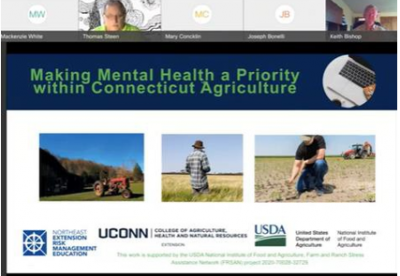
Risk Management Education Partner Program
We partnered with The Carrot Project for 3 live virtual and 3 recorded financial management classes covering bookkeeping, cash flow budgeting & breakeven analysis, and scenario planning & sensitivity analysis. There were 65 participants. The recordings are on the http://ctfarmrisk.extension.uconn.edu website. Those that responded to the evaluation all indicated they plan to use the information now in the farm businesses with 3 indicating they are planning to seek additional one-on-one assistance as a result of these programs. Team: Mary Concklin and Joseph Bonelli, Associate Extension Educator, Farm Business Management. Funding provided by USDA Risk Management Agency (RMA).
New England Winter Fruit Seminar Series hosted by the Fruit Extension Educators in each of the NE states. These seminars occurred weekly at the lunch hour from January through March, with pesticide update credits provided at most. Attendees ranged from 89 to 130 each week.
New England Vegetable & Fruit Conference was held virtually December 13-17, 2021. There were 618 registrants, 81 panelists (speakers and moderators), and 39 presentations. 150-300 registrants attended each session.
Fruit Message: 130 fruit messages were emailed to 522 fruit growers and industry members in 2021 covering pest information, management strategies, cultural practices, meetings and educational programs. Most of the messages are available at the IPM website (https://ipm.cahnr.uconn.edu/).
PYO and Marketing Revisited virtual meeting
Concklin hosted a live grower webinar discussion, Revisiting PYO and Farmstand/Marketing Adjustments Due to COVID-19, on April 14, 2021. Additional speakers included Bryan Hurlburt (Commissioner, CT Dept of Agriculture) and growers Jaime Jones, Jones Family Farms, Shelton CT; Russell Holmberg, Holmberg Orchards, Gales Ferry CT; Michaele Williams, Bishops Orchards, Guilford CT; Don Preli, Belltown Hill Orchards, South Glastonbury CT; Andre Tougas, Tougas Family Farm, Northborough MA; and Trevor Hardy, Brookdale Orchards, Hollis NH. There were 67 participants.
2021 IPM Projects and Publications
Bonelli, J. and M. Concklin. Simplifying Risk Management through Collaboration and Innovation. 2020-2021. Funding: USDA Extension Risk Management Education (ERME) grant
Bonelli, J. and M. Concklin. Crop Insurance and Risk Management Promotion, Education and Training for Connecticut Farmers and Growers 2021-2022. Funding: USDA Risk Management Agency (RMA)
Bradshaw, T, M. Concklin, H. Faubert, G. Hamilton, E. Garafola. 2021 Virtual Fruit Workshops, weekly January – March 2021
Bonelli, J, and M. Concklin. Financial Benchmarking – Risk Management training. May 5, 2021. Virtual
Brown, R.N., A. Radin, J. Amador, J. Gorres, and S. Ghimire. How much is too much? Managing nutrients in high tunnel vegetable production. Funding: USDA NRCS.
Concklin, M. Berry Production 101: Raspberries & Blackberries. Southeast Massachusetts 14th Annual Ag & Food Conference. March 1, 2021
Concklin, M. Blueberry Pruning is a Science. UConn Crop Talk Newsletter, March 2021, Vol 17, Issue 1, pgs. 7-8
Concklin, M. Rotation Between Fruit Crops. UConn Crop Talk Newsletter, November 2021 Vol 17, Issue 2, pg. 2
Concklin, M. editor. 2021 Tree Fruit Management Guide – Stone Fruit sections. On-line at https://netreefruit.org
Concklin, M. Pruning and Rejuvenating Tree Fruit. CT and RI NOFA Virtual Annual Meeting, March 13, 2021
Concklin, M. Editor. 2020 IPM Team Annual report.
Concklin, M. Agricultural Issues facing the world: SWD and COVD. January 8, 2021. Middletown High School Juniors and Seniors, Natural Resources class. Virtual
Concklin, M. 1-on-1 Virtual Commercial Fruit Production consulting sessions. February 8, 18, 23 and March 5, 2021
Concklin, M. NEERA Annual Meeting – CT IPM Report. Virtual. April 23, 2021
Concklin, M. Secretary. Northeast Berry Call. Tuesdays, 8 am, April – June 2021,
Concklin, M. Drone Imagery for Early Detection of Fruit. Crop Nutritional Deficiencies. Evan Lentz and Nancy Marek, graduate students; Dr. Chandi Witharana and Dept. of Natural Resources and Environment, UConn. Funding: USDA SCBG. 2020-2022
Concklin, M. BMSB Monitoring. Cooperating growers: Belltown Orchards, Blue Hills Orchard, Hickory Hill Orchard, Rogers Orchards. Funding: USDA-NIFA-CPPM grant.
Concklin, M. Fruit IPM – Applied Research and Outreach Programs. USDA NIFA CPPM EIP.
Concklin M. and E. Lentz. 2 video clips were produced for IPM and SWD. On the IPM website (https://ipm.cahnr.uconn.edu)
Ghimire, S. Insect-pest and natural enemy dynamics on three reduced-till vegetable farms. NOFA, Conservation Innovation Grant, NRCS.
Ghimire, S. Yield and quality of tomato with boron-enhanced SOP fertilizer. Rose Mill Co. West Hartford, CT.
Ghimire, S., J. Bonelli, and R. Ricard. Mashantucket Pequot Federally Recognized Tribes Extension Program. Funding: USDA/NIFA FRTEP.
Ghimire, S., J. Bonelli, and R. Ricard. Ripple Effect Mapping for Mashantucket Pequot Federally Recognized Tribes Extension Program. Funding: Indian Land Tenure Foundation.
Goltz, N.C. North Central Plant Diagnostic Network. USDA National Institute of Food and Agriculture (NIFA)/ Michigan State University.
Goltz, N. Introduction to Plant Diagnostics. UConn Plant Science and Landscape Architecture Courses. Fall 2021
Goltz, N. Entomology Module. UConn Extension Ornamentals and Turf Course. Fall 2021
Goltz, N. Plant pathology Module. UConn Extension Ornamentals and Turf Course. Fall 2021
Goltz, N. Handy Home Diagnostic Guide to Key Pests and Diseases of Boxwoods. November 9, 2021. https://uconnladybug.wordpress.com/
Goltz, N. Too Much Summer Rain for You? You’re Not Alone…. October 2, 2021. https://uconnladybug.wordpress.com/
Goltz, N. Help protect Connecticut’s Boxwoods! August 27, 2021 (Adapted from USDA coordinated Boxwood Moth response materials). https://uconnladybug.wordpress.com/
Johnson, A., S. Ghimire, J. Hyde, M. DeBacco, B. Goetsch, and J. Ireland. 2021. Connecticut Hemp Webinar Series 2021- Part 1.
Legrand, A and M. Concklin. UConn Subcontract. An Undergraduate Integrated Pest Management (IPM) Training Program for the South and Northeast Regions. USDA AFRI ELI.
Legrand, A. In cooperation with the CNLA Education Committee. Spanish Program for Green Industry Employees.
Legrand, A. In cooperation with the CNLA Education Committee. Spanish Program for Green Industry Employees. CNLA 2021 Winter Symposium & Expo.
Legrand, A. Vegetable IPM – Applied Research and Outreach Programs. USDA NIFA CPPM EIP.
Legrand, A. and C. Witharana. Integrated Systems Research and Development in Automation and Sensors for Sustainability of Specialty Crops. SAES Capacity Grant Program.
Pundt, L. 2021. Using Beneficial Nematodes Against Fungus Gnat Larvae and Thrips Pupae in your Spring Greenhouse Crops. Crop Talk. 17 (2) 5-6.
Pundt, L. 2021. Biological Control of Whiteflies. UConn IPM Factsheet June 2021. 7 pp.
Pundt, L. 2021. Black Rot on Cole Crop Transplants. UConn IPM Factsheet. April 2021. 2 pp.
Pundt, L. 2021. Identifying and Managing Pests on Vegetable Bedding Plants. Handout for webinar.
Pundt, L. 2021. Growing Herb Bedding Plants. Crop Talk. 17(1):9-10.
Pundt, L. and T. Smith. 2021. Pest Management for Herb Bedding Plants Grown in the Greenhouse. (in press) https://ipm.cahnr.uconn.edu/herbs-greenhouse-2/
Scheufele, S., G. Higgins, S. Ghimire, and A. Radin. 2021. Southern New England Vegetable Growers Meeting Series.
Scheufele, S., A. Legrand, B. Sideman, F. Zaman, and D. Gilrein. Increasing Grower Adoption of Ecologically- based Pest Management Strategies to Improve Quality and Yield of Brassica Crops. NE SARE.
Witharana, C., A. Legrand and S. Ghimire. Early Detection of Potato Leafhopper Damage Using Unmanned Aerial Systems. Northeast IPM Center Partnership Grants.
Wallace, V. Environmentally Friendly & Sustainable Turfgrass for New England Cemetery Operations. December 7, 2021. New England Cemetery Association Conference. Sturbridge, MA. (50 attendees)
Wallace, V. Sustainable Landscaping and the UConn Native Plant and Sustainable Landscaping Guide. November 22, 2021. CT Recreation and Parks Association Conference. Uncasville, CT. (58 attendees)
Wallace, V. Integrating Assessments into a Municipal and Landscape Management Program. February 24, 2021. Virtual. CGKA Educational Program. (177 attendees)
Wallace, V. Integrating Assessments into a Municipal or School Grounds Management Program. January 20, 2021. Virtual. CT School Building and Grounds Association. (23 attendees)
Wallace, V. Integrating Assessments into a Municipal or School Grounds Management Program. January 4, 2021. Virtual. Ohio State Turfgrass Foundation Conference. (75 attendees)
Wallace, V. Cornell “Short Cutts”. UConn representative for a regional turfgrass conference call and newsletter (33-35 weeks/year; April-October), hosted by Cornell Extension faculty. IPM recommendations for turfgrass managers along with current research and weather forecasting were made available to Extension faculty in the Northeast.
Wallace, V. (2021) Biological Control of Swallowwort (Vincetoxicum nigrum/rossicum) in Connecticut, Semi- annual Accomplishment Report 2021.
Wallace, V. and A. Siegel-Miles. (2021) Connecticut Native Plant and Sustainable Landscaping Guide. Ecological Landscape Alliance. https://www.ecolandscaping.org/07/resources/book-reviews/connecticut-native-plant-and- sustainable-landscaping-guide
Wallace, V. (2021). Biological Control of Swallowwort (Vincetoxicum nigrum/rossicum) in Connecticut, Final Accomplishment Report Fiscal Year 2020.
Wallace, V. and A. Siegel-Miles. (2021) Best Management Practices for Pesticide-Free Landscape Maintenance on CT School Grounds, Updated. 35 pp. ipm.uconn.edu
Wallace, V. and A. Siegel-Miles. (2021) Invasive Jumping Worms. UConn Extension. 2 pp. ipm.uconn.edu
Wallace, V. and A. Siegel-Miles. (2021) Sustainable Landscaping Tips. UConn Extension. 2 pp. ipm.uconn.edu
Wallace, V., A. Siegel-Miles, and K. Sowizral. (2021) Invasive Plant Factsheet: Japanese Honeysuckle. UConn Extension. 2 pp. ipm.uconn.edu
Wallace, V., A. Siegel-Miles, and K. Sowizral. (2021) Invasive Plant Factsheet: Autumn Olive. UConn Extension. 2 pp. ipm.uconn.edu
Wallace, V., A. Siegel-Miles, and K. Sowizral. (2021) Invasive Plant Factsheet: Tree-of-Heaven. UConn Extension. 2 pp. ipm.uconn.edu
Wallace, V., A. Siegel-Miles, and K. Sowizral. (2021) Invasive Plant Factsheet: Japanese Knotweed. UConn Extension. 2 pp. ipm.uconn.edu
Wallace, V., A. Siegel-Miles, K. Sowizral, and S. Tomis. (2021) Growing Degree Days – Insects of Connecticut. Spreadsheet, updated. UConn Extension. 6 pp. ipm.uconn.edu
Wallace, V. and A. Siegel-Miles. (2021) Connecticut Native Plant and Sustainable Landscaping Guide. Updates and Increased Publicity. 44 pp. ipm.uconn.edu
Wallace, V., A. Siegel-Miles, and K. Sowizral. Spanish Translation by Ivette Lopez. (2021) Hierba Zancuda Japonesa (Microstegium vimineum). 2 pp. ipm.uconn.edu
Wallace, V. and A. Siegel-Miles. Spanish Translation by Ivette Lopez. (2021) Milla por Minuto (Polygonum perfoliatum, sin. Persicaria perfoliata). 2 pp. ipm.uconn.edu
Wallace, V., A. Siegel-Miles, and K. Sowizral. Spanish Translation by Ivette Lopez. (2021) El Carrizo (Phragmites australis). 2 pp. ipm.uconn.edu
Wallace, V., A. Siegel-Miles, and K. Sowizral. Spanish Translation by Ivette Lopez. (2021) Bérbero Japonés (Berberis thunbergii). 2 pp. ipm.uconn.edu
Wallace, V. and A. Siegel-Miles. Spanish Translation by Ivette Lopez. (2021) Zarza ardiente/ Euonymus alado (Euonymus alatus). 2 pp. ipm.uconn.edu
Wallace, V., A. Siegel-Miles, and K. Sowizral. Spanish Translation by Ivette Lopez. (2021) Agridulce Asiática (Celastrus orbiculatus). 2 pp. ipm.uconn.edu
Wallace, V., A. Siegel-Miles, and K. Sowizral. Spanish Translation by Ivette Lopez. (2021) Mostaza de ajo (Alliaria petiolata). 2 pp. ipm.uconn.edu
Wallace, V., A. Siegel-Miles, and K. Sowizral. Spanish Translation by Ivette Lopez. (2021) Rosa multiflora (Rosa multiflora). 2 pp. ipm.uconn.edu
Wallace, V., A. Siegel-Miles, and K. Sowizral. Spanish Translation by Ivette Lopez. (2021) Mosto de Golondrina Negro (Vincetoxicum nigrum; syn. Cynanchum louiseae); Mosto de Golondrina Pálido (Vincetoxicum rossicum; syn. Cynanchum rossicum). 2 pp. ipm.uconn.edu
Wallace, V. and A. Siegel-Miles. (2021) School Grounds Manager COVID Survey Results Factsheet. UConn Extension. 2 pp. ipm.uconn.edu
Henderson, J. and V. Wallace. (2021) Best Management Practices for Pesticide-Free, Cool Season Athletic Fields, 2nd edition. Updated. 23 pp. University of Connecticut, Storrs, CT. ipm.uconn.edu
Wallace. V., J. Henderson, and A. Siegel-Miles. (2021) Cultivation of Sports Fields: An Absolute Must. Video. www.ipm.uconn.edu
Wallace. V., J. Henderson, and A. Siegel-Miles. (2021) Cultivation of Sports Fields: An Absolute Must. Video. www.ipm.uconn.edu
Wallace, V. (Chair of the STMA Task Force Committee). (2021) Best Management Practices for the Sports Field Manager: A Professional Guide for Environmental Sports Field Management. Sports Turf Managers Association. 128 pp. www.stma.org
Wallace, V. (2021) Biological Control of Swallowwort (Vincetoxicum nigrum/rossicum) in Connecticut. 2021
Wallace, V. (2021) National Turfgrass Evaluation Program – Tall Fescue Test, Year 3 (in progress)
Wallace, V. (2021) National Turfgrass Evaluation Program – Fine Fescue Test, Year 1 (in progress)
Wallace, V. Turfgrass IPM – Applied Research and Outreach Programs. USDA NIFA CPPM EIP.
Wallace, V. 2021 CNLA Winter Symposium Virtual. Planning Committee.
Wallace, V. Native Plant and Pollinator Conference, 2021. Virtual, CT. Moderator, Planning Committee.
Wallace, V. 2018 National Turfgrass Evaluation Trial-Tall Fescue Test, Year 3, National Turfgrass Evaluation Program.
Wallace, V. 2021 National Turfgrass Evaluation Trial-Fine Fescue Test, Year 1, National Turfgrass Evaluation Program.
Wallace, V. 2021 CT Pesticide Law Survey of CT School Grounds Managers.
IPM Program Partners
A number of individuals, organizations, and groups were instrumental in the success of many IPM Program efforts. The UConn IPM Program Team is grateful for their cooperation and assistance. In addition, the IPM Program Team acknowledges the assistance of municipal staff (departments of public works, parks and recreation, conservation commissions, inland wetlands commissions, and Town Mayors/Managers/First Selectman) from many Connecticut towns.
Phil Alligretti, The Plant Group, Inc., North Franklin, CT American Phytopathological Society, Northeastern Division Audubon Society of Connecticut
Jason Barnes, Geremia Greenhouses, Wallingford, CT Nancy Barrett, Scantic Farm, Somers, CT
Chip Beckett, Beckett Farm, Glastonbury, CT
Steve Bengtson, Cold Spring Brook Farm, Berlin, CT Michaele Williams, Bishop’s Orchards, Guilford, CT
Andrew Brand, Interim Director of Horticulture, Coastal Maine Botanical Garden Evan Brand, Prides Corner Farms, Lebanon, CT
Richard Calarco, Former Director, Town of Hebron Parks and Recreation Department, Hebron, CT, Advisor Alex Carpenter, Assawaga Farm, Putnam CT
Spencer Cartabiano, Willow Valley Farm, Willington, CT
John Casertano, Phil Sharkey, and Vern Weeda, Casertano’s Greenhouse & Farms, Inc., Cheshire and Wallingford, CT
Jeff Cole, The Carrot Project
The Connecticut Agricultural Experiment Station (Dr. Jatinder Aulakh, Dr. Carole Cheah, Dr. Richard Cowles, Katherine Dugas, Robert Durgy, Dr. Wade Elmer, Rose Hiskes, Dr. James LaMondia, Dr. Yonghao Li, Dr. Robert Marra, Dr. Kimberly Stoner, Emmett Varricchio)
Connecticut Conference of Municipalities Connecticut Department of Agriculture
Connecticut Department of Energy and Environmental Protection (DEEP) Connecticut Environmental Council (CTEC)
Connecticut Farm Bureau
Connecticut Greenhouse Growers Association (CGGA) Connecticut Grounds Keepers Association (CGKA) Connecticut Horticultural Society
Connecticut Invasive Plants Council
Connecticut Invasive Plant Working Group (CIPWG) Connecticut Nursery and Landscape Association (CNLA)
Connecticut Nursery, Christmas tree, orchard, and berry producers participating in commodity surveys Connecticut Outdoor & Environmental Education Association
Connecticut Pomological Society
Connecticut Recreation & Parks Association (CRPA)
Connecticut River Coastal, Eastern, North Central, Northwest, and Southwest Conservation Districts Connecticut School Building and Grounds Association
Connecticut School IPM Coalition Connecticut Tree Protective Association
Silvio O. Conte National Fish & Wildlife Refuge Cornell University and Cornell Cooperative Extension Eli Drazen, Drazen Orchards, Cheshire, CT
Andrea Duarte, CT Department of Mental Health, Prevention & Addiction Services Mark Dwyer, Owner, Landscape Prescriptions by MD
Donny Dzen, Dzen Brothers Farm, East Windsor, CT
Mike Emmons, former director, Prides Corner Farms, Lebanon, CT; advisor Farm Credit East
Greg Foran, Town of Glastonbury, Glastonbury, CT
Daniel Gilrein, Cornell Cooperative Extension, Suffolk County Lisa Golden, Agricultural Worker
Bruce Gresczyk Jr. Gresczyk Farms, New Hartford, CT Dr. Vern Grubinger, University of Vermont
George Hamilton, University of New Hampshire Trevor Hardy, Brookdale Fruit Farm, NH
Peter Hayward, Hayward Farm, New Hartford, CT Jim Heilman, Kogut Nursery LLC, Wallingford, CT Eric Henry, Blue Hills Orchard, Wallingford, CT
Rick and Russ Holmberg, Holmberg Orchards, Gales Ferry, CT Bryan Hurlburt, Commissioner, CT Department of Agriculture Invasive Plant Atlas of New England (IPANE)
Jon Jaffe, Farm Credit East
Jamie Jones, Jones Family Farms, Shelton, CT
Diane Jorsey, CT Department of Energy and Environmental Protection Kogut Nursery, Meriden, CT
Paul Larson, Sprucedale Gardens, Woodstock, CT
Bob Leonard, Sam Bridge Nursery and Garden Center, Greenwich, CT Mashantucket Pequot Tribal Nation
Matthew Masiunas, East Windsor’s SiteOne Massachusetts Tree Fruit Growers’ Association Jeff Mayer, CK Greenhouses, Cheshire, CT
Rebecca McMackin, Director of Horticulture, Brooklyn Bridge Park Andy Meek, Stone Acres Farm, Stonington, CT
George Motel Sr. and George Motel Jr., Sunset Meadow Vineyard, Goshen, CT Monrovia Nursery, Granby, CT
Steve Munno, Massaro Community Farm, Woodbridge, CT Dustyn Nelson, Frank’s Landscape Construction
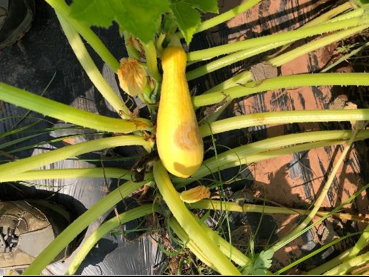
Kathleen Nelson, Mad Gardeners, Inc. New England Floriculture, Inc.
New England Invasive Plant Group
New England Small Fruit Management Guide editing committee New England Sports Turf Managers Association (NESTMA) New England Tree Fruit Management Guide editing committee New England Vegetable & Berry Growers’ Association
New England Vegetable & Fruit Conference Steering Committee New England Vegetable Management Guide Editing Committee
Darryl Newman and Mark Kokinchak, Planters’ Choice Nursery, Newtown and Watertown, CT Northeast Organic Farming Association of Connecticut (CT NOFA)
Peter Picone, CT Department of Energy and Environmental Protection Dr. Daniel Potter, Professor of Entomology, University of Kentucky Don and Mike Preli, Belltown Hill Orchards, South Glastonbury, CT
John and Peter Rogers and Greg Parzych, Rogers Orchards, Southington, CT Rose Mill Company, Hartford, Connecticut
Jeff Sandness, Buell’s Orchard, Eastford, CT Jerry Savino, Savino Vineyards, Woodbridge, CT
Steve Sawyer, Preston Ridge Vineyards, Preston, CT Susan Scheufele, UMass Vegetable Program
Linda Schmidt, CT Department of Energy and Environmental Protection Karen and Tom Scott, Scott’s Yankee Farmer, East Lyme, CT
Dr. Becky Sideman, University of New Hampshire Heather Spade, CT NCSP
Kathy Spielman, CT Pomological Society, Windsor, CT Peter Stave, Town of Manchester, Manchester, CT
Tom Steen, Steen Consulting, Simsbury, CT
Lisa Stevens, CT Nursery and Landscape Association (CNLA) Yoko Takemura, Assawaga Farm, Putnam, CT
Dr. Lisa Tewksbury, University of Rhode Island Tolland County Agricultural Center Trustees Tolland County Extension Council
John Torello, Bishops Farms, Cheshire, CT
UConn College of Agriculture, Health and Natural Resources: Dr. Indrajeet Chaubey, Dean
UConn Department of Natural Resources and the Environment John Bartok, Jr., Faculty Emeritus
Dr. Chandi Witharana, Assistant Professor
UConn Department of Plant Science and Landscape Architecture faculty and staff: Dr. Mark Brand, Professor
Dr. Karl Guillard, Professor
Dr. Jason Henderson, Associate Professor Dr. John Inguagiato, Associate Professor Evan Lentz, UConn Graduate Student
Dr. Yi Li, Professor
Dr. Jessica Lubell-Brand, Associate Professor Dr.
Richard McAvoy, Professor and Head Stephen Olsen, Manager, Farm Services Dawn Pettinelli, Assistant Extension Educator
Steven Rackliffe, Extension Professor
Dr. Rosa Raudales, Assistant Professor UConn Extension faculty and staff:
Joseph Bonelli, Associate Extension Educator
Bonnie Burr, Assistant Director and Department Head Michael Dietz, Extension Educator
Dr. Michael O’Neill, Associate Dean and Associate Director, Gail Reynolds
Alyssa Siegel-Miles, Program Aide Stacey Stearns, Program Specialist 1
UConn Extension Master Gardener Program UConn Home & Garden Education Center UConn Plant Diagnostic Laboratory
UConn Plant Science Research and Education Facilities UConn Soil Nutrient Analysis Laboratory
University of Connecticut University of Delaware University of Maine University of Massachusetts University of New Hampshire University of Rhode Island University of Tennessee University of Vermont
USDA APHIS: Charles Baker, USDA APHIS: Kate Aitkenhead
USDA Natural Resources Conservation Service (NRCS) USDA Risk Management Agency (RMA)
Washington State University Dan Welch, Cornell University
Jim Wells, Monrovia Nursery Company, East Granby, CT Daniel Wood, Stone Acres Farm, Stonington, CT
Doug Young, Woodstock Orchards, Woodstock, CT
Dr. Faruque Zaman, Cornell Cooperative Extension, Suffolk County
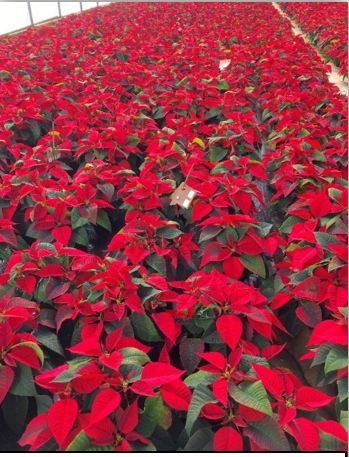
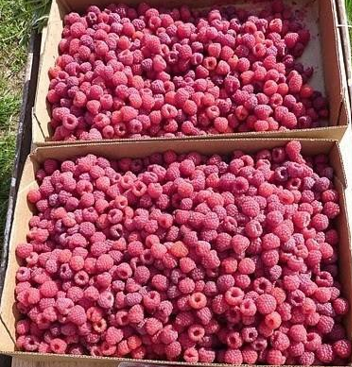
Photo: Mary Concklin
